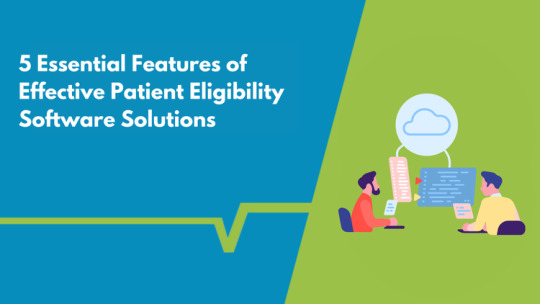#Patient Data Management
Text
A digital patient onboarding platform can improve patient experience and healthcare business workflows. Check out our hospital and clinical trial digital transformation solutions for easy processes and effective data management.
#clinical trial management solutions#clinical trial portal#clinical research solutions#patient onboarding platform#patient onboarding process#patient data management#patient onboarding solutions#liferay for healthcare ctms#patient onboarding
0 notes
Text

PBS Transforming Healthcare company integrate new technologies for improving the healthcare services reach to patient from provider faster and safer.
For more info:- Healthcare Software in Bahamas
Schedule a Call: Hotline
Phone : +1 (242) 322-1034/5
Phone : +1 (242) 397-3100
Fax : +1 (242) 322-1036
Email contact:[email protected]
Facebook:- https://www.facebook.com/pbsbahama
#Healthcare Software in Bahamas#Telehealth#Remote Patient Monitoring#Electronic Medical Records#RPM#EMR#IT medical service provider#Hospital Management Systems#Clinic Management System#Doctor management system#Patient Data Management#Connecting Patients to physicians#Virtual medical platform#None contact consulations#Health Care Services#Affordable Healthcare Services#PBS tele health Services#Integrated Health Kit and Services#affordable health care#Best Healthcare Services#Best Healthcare Agency#Health Care Provider Company#Home Healthcare Services#Online Medical Home Care Services#Online Doctor Consultation#Online medical consultation#Online Healthcare Solutions#Online Healthcare Service Provider#Consult Top Doctors Online#Online Healthcare Experts Consultation
0 notes
Text
Having to constantly remind myself that most people cannot simply spend an afternoon reading neurology studies while validating their methodology to reach a reasonable conclusion about X Y or Z, and that expecting them to do so is not merely a failing on my part, but actively puts people at risk of not factoring for a small detail hich would dramatically alter their outcomes that I'm aware of but not consciously including in my very haphazard writeups.
Theory of mind? Never heard of her.
#This is the real reason I could never go into medicine#Same as with teaching#My ability to understand what other people don't know is None#I have No Ability To Do That#With teaching that means I'd put a child in immediate danger because I forgot they don't know Thing#With medicine I'd put a patient in immediate danger because I forgot they don't know Thing#Organization and strategy and data management and problem solving? Got it in spades#Ability to express to others why the thing they are doing is about to get them killed? None
4 notes
·
View notes
Text
Hospital Management Software Demystified: Understanding the Basics

In the intricate world of healthcare, the efficient management of hospital operations is paramount to ensuring quality care delivery. Hospital management software serves as the backbone of modern healthcare institutions, streamlining processes, and enhancing overall efficiency. In this blog, we will delve into the fundamental aspects of hospital management software, shedding light on its key components and functionalities.
Patient Data: At the heart of any healthcare institution lies the comprehensive patient data management system facilitated by hospital management software. From admission to discharge, every interaction and medical record pertaining to a patient is meticulously documented and stored electronically. This not only ensures easy access to patient information but also facilitates seamless communication among healthcare providers.
E-Records: Gone are the days of paper-based record-keeping systems. With the advent of hospital management software, the transition to electronic health records (EHRs) has revolutionized the way patient data is managed. E-records not only minimize the risk of errors associated with manual documentation but also enable healthcare professionals to retrieve vital information swiftly, thereby enhancing the quality and efficiency of patient care.
Admin Efficiency: Efficient administration is the cornerstone of effective hospital management. Hospital management software plays a pivotal role in optimizing administrative tasks, ranging from appointment scheduling and inventory management to billing and invoicing. By automating these processes, administrative staff can allocate their time and resources more effectively, thereby improving overall productivity and service delivery.

Staff Management: Proper allocation and management of human resources are essential for the smooth functioning of any healthcare institution. Hospital management software offers robust tools for staff scheduling, task assignment, and performance tracking. By centralizing staff management processes, healthcare administrators can ensure adequate staffing levels and optimize workforce utilization, leading to improved patient outcomes and staff satisfaction.
Analytics & Reporting: In the era of data-driven decision-making, hospital management software provides invaluable insights through advanced analytics and reporting capabilities. By analyzing key performance metrics and trends, healthcare administrators can identify areas for improvement, streamline operations, and enhance the overall quality of care. Moreover, comprehensive reporting functionalities enable institutions to meet regulatory requirements and demonstrate compliance with industry standards.
In conclusion, hospital management software serves as a cornerstone of modern healthcare delivery, revolutionizing the way institutions manage patient data, streamline operations, and optimize resource utilization. By leveraging the power of hospital management software, healthcare institutions can enhance efficiency, improve patient outcomes, and stay ahead in an ever-evolving healthcare landscape.
0 notes
Text
Best patient data management system
Procify360, the best hospital management software can help healthcare providers to engage with patients more effectively. healthcare management system can leads to improved patient compliance, better health outcomes and increased patient loyalty.
0 notes
Text
Clinical Trials : Holistic Exploration of the Current State and Future Outlook
The global clinical trials market size is expected to reach USD 123.5 billion by 2030, expanding at a CAGR of 6.49 from 2024 to 2030, according to a new report by Grand View Research, Inc. An increase in the volume and complexity of clinical trials has been witnessed lately, which plays an important role in the R&D of new drugs and products. The market witnessed a decline of 6% in 2020 owing to the COVID-19 pandemic. However, the market is projected to recover from 2021 onwards. In addition, clinical trials have become increasingly costly, adding to the overall cost of developing a drug.

Clinical Trials Market Report Highlights
The phase III clinical trials segment dominated the market with a 53.3% share in 2023. This can be attributed to the complexity of this phase
The interventional studies segment dominated the market in 2023. It is one of the most prominent methods used in clinical trials in the study design segment owing to the increasing demand for the intervention for clinical trials by researchers
North America held 50.3% of the market share in 2023. Favorable government initiatives and the presence of a large number of players in the U.S. that offer advanced services are responsible for market growth
Asia Pacific region is anticipated to grow at the fastest CAGR over the forecast period owing to the increasing patient pool and cost-efficient services.
For More Details or Sample Copy please visit link @: Clinical Trials Market Report
The increasing need for developing new drugs for chronic diseases, such as cancer, respiratory disorders, diabetes, cardiovascular diseases, and others, is creating immense pressure on the healthcare industry. The COVID-19 pandemic and the increasing demand for developing a suitable treatment are driving the market. The high number of people affected by the disease further depicts an increasing need for therapeutics & vaccines. Currently, there are 288 therapeutics and 106 vaccines under development, out of which, nearly 7.0% of therapeutics are in Phase IV, 21.0% in Phase III, and 43.0% & 13.0% in Phase II & Phase I, respectively.
The pandemic has resulted in the global disruption of traditional onsite clinical trials. Hence, regulatory bodies worldwide have undertaken various initiatives for fast-tracking clinical trials for the development of innovative solutions. One such instance is Solidarity, an international clinical trial launched by the WHO to find effective treatment against COVID-19. Although the pandemic has forced many medical device & drug developers to revise the approach to such crises, integrating best practices within clinical trial procedures & adapting to virtual trials, which can support the continuous development of therapeutics.
ClinicalTrials #HealthcareResearch #MedicalInnovation #DrugDevelopment #PatientRecruitment #Biopharmaceuticals #ClinicalResearch #RegulatoryCompliance #DataManagement #PatientEngagement #PrecisionMedicine #TherapeuticTrials #CROs #ClinicalResearchOrganizations #GlobalHealth #ClinicalStudyDesign #PharmaceuticalIndustry #BiotechResearch #ClinicalEndpoints #HealthTechIntegration
#Clinical Trials#Healthcare Research#Medical Innovation#Drug Development#Patient Recruitment#Biopharmaceuticals#Clinical Research#Regulatory Compliance#Data Management#Patient Engagement#Precision Medicine#Therapeutic Trials#CROs#Clinical Research Organizations#Global Health#Clinical Study Design#Pharmaceutical Industry#Biotech Research#Clinical End-points#HealthTech Integration
0 notes
Text
Online Hospital Management software to maintain patient data security. Digital healthcare system for doctors in India. Cloud-based solution for Lab and pharmacy.
0 notes
Text

Healthcare Software Solutions Company
A Healthcare Software Solutions Company is a company that specializes in creating and maintaining websites for healthcare organizations, such as hospitals, clinics, pharmacies, laboratories, and insurance companies. A healthcare website design company can help healthcare organizations improve their online presence, reach, and reputation, as well as enhance their patient care and satisfaction.
#Custom Healthcare Apps Development Company#Medical Mobile App Development Services#Patient Data Management Software#Patient Information Management Software#Healthcare Saas Solutions
0 notes
Text
The Crucial Role of Enterprise Risk Management in Modern Healthcare

Imagine you're a tightrope walker, thousands of feet above the ground. Without a safety net, any misstep can lead to disaster. Now, think of the healthcare sector as this tightrope walker. With the myriad of complexities, regulations, and unpredictable factors that can pop up every day, having a robust safety net is paramount. Entering the safety net we all need: enterprise risk management software in healthcare. This is not just any safety net; it's a dynamic, adaptable, and resilient one that assures everyone on the rope can perform their best without the constant fear of falling.
Ready to know more? Let's unravel the magic thread by thread, shall we?
What is Enterprise Risk Management in Healthcare Anyway?
You might be wondering, what's the big deal about enterprise risk management in healthcare? Let's break it down. At its core, it's about identifying potential risks, assessing them, and putting in place strategies to manage those risks. Think of it as a proactive approach rather than a reactive one.
In the healthcare sector, there are countless unpredictable factors. From patient care challenges to technology hiccups to regulatory changes. Having a system that spots potential threats before they escalate? That’s the golden ticket.
And guess what? This golden ticket isn't reserved for a select few. Every stakeholder, from medical professionals to administrative staff, plays a part in making enterprise risk management in healthcare a success.
By embracing this approach, healthcare providers ensure smoother operations, better patient outcomes, and yes, a sigh of relief knowing they're backed up by a robust system.
The Game-Changing Benefits of Enterprise Risk Management in Healthcare
Sure, enterprise risk management in healthcare sounds neat, but what's in it for the healthcare sector? Well, a lot. For starters, it helps in early risk detection. By spotting issues before they blow up, institutions can save resources, reputation, and most importantly, lives.
Secondly, it promotes a culture of safety. When everyone is tuned into the risk management frequency, it fosters an environment where safety is the norm, not the exception. It's like having a team where everyone is a goalkeeper, always on the lookout, and ready to defend.
Lastly, it enhances decision-making. Armed with the right information and tools, healthcare providers can make informed decisions. It's like having a roadmap in a maze, guiding you at every twist and turn.
Real-Life Instances: Enterprise Risk Management in Action
Picture this: A hospital is planning to implement a new electronic health record (EHR) system. It’s shiny and promising, and everyone’s excited. But with this system come potential risks: data breaches, system downtime, and training challenges, to name a few.
By employing enterprise risk management, the hospital can anticipate these risks. They can put measures in place to mitigate them. So instead of panicking when there's a system glitch, they have a backup plan, trained staff, and solutions ready to deploy.
Another scenario? A sudden outbreak of a contagious disease. With a solid risk management plan, hospitals can predict resource needs, mobilize teams faster, and ensure the safety of both patients and staff.
Best Practices to Maximize Enterprise Risk Management in Healthcare
So, you're sold on enterprise risk management in healthcare. That’s great, but… how do you make the most of it?
Begin by fostering a culture of open communication. Encourage staff at all levels to voice concerns and observations. Remember, it’s a team game.
Secondly, invest in training. Equip your team with the skills and knowledge they need to be effective risk managers. It’s like giving them a magnifying glass to spot even the tiniest of threats.
Lastly, keep revisiting and refining your strategies. The healthcare landscape is ever-evolving, and so should your risk management approach. It's about being agile, adaptable, and always on your toes.
Challenges to Implementing Enterprise Risk Management
While the benefits of enterprise risk management in healthcare are plenty, it’s not without its challenges. First up, is resistance to change. It’s human nature. Introducing a new system or approach can often meet with skepticism. The key? Consistent communication and highlighting the bigger picture.
Then there’s the challenge of resources. Implementing a robust risk management system requires investment: both time and money. Here, long-term vision becomes crucial. It’s not about the immediate costs, but the long-term savings and benefits.
Lastly, the vastness of the healthcare sector can be daunting. With so many departments and functions, integrating them under one risk management umbrella can seem overwhelming. But remember, step by step, brick by brick, it’s doable.
The Future of Enterprise Risk Management in Healthcare
The horizon of healthcare is vast and ever-evolving, and as we stand at its edge, enterprise risk management in healthcare looms large, promising a safer and more efficient future.
Firstly, with the integration of artificial intelligence and machine learning, risk management is on the cusp of a revolution. Predictive models can analyze vast data sets, recognize patterns, and forecast potential risks way before they materialize.
Furthermore, with the global community becoming more interconnected, the sharing of risk management strategies across borders will become commonplace. Hospitals in New York might soon be implementing strategies tested and refined in Tokyo or Mumbai. This cross-pollination of ideas ensures that best practices are not confined within borders but are shared, refined, and implemented globally.
Additionally, as patient care becomes more personalized with treatments like gene therapy and personalized medicine, risk management will need to adapt. Enterprise risk management in healthcare will play a pivotal role in ensuring that these bespoke treatments are delivered safely, taking into account the unique risks they may present.
But it's not just about technology and global collaboration. The future will also see a stronger emphasis on the human aspect. Emotional intelligence, understanding patient behaviors, and predicting human errors will become crucial components of risk management. After all, machines can crunch numbers, but understanding the human heart and mind? That’s where the real challenge and opportunity lie. For more details contact us at https://www.safequal.net/contact-us/.
Lastly, sustainability and eco-friendly practices are making waves in every sector, and healthcare is no exception. The future of enterprise risk management will also encompass strategies to reduce carbon footprints, manage bio-waste efficiently, and ensure a sustainable healthcare environment.
Conclusion
Navigating the intricate world of healthcare can often feel like walking on a tightrope. But with enterprise risk management in healthcare, the sector gets more than just a safety net. It gets a strategy, a plan, and a vision for a future where risks are not just managed but anticipated and mitigated. Embracing it isn’t just a smart move; it's the need of the hour.
Read More:
#enterprise risk management in healthcare#Enterprise Risk Management#Healthcare Safety#Patient Protection#Data Safeguard#Modern Healthcare#Effective Operations#Risk Mitigation#Healthcare ERM
0 notes
Text
The medical landscape continuously evolves, and one innovation leading the shift is telehealth. As a healthcare provider in Texas, we’ve seen the several advantages telehealth brings to patient care.
1 note
·
View note
Text
5 Essential Features of Effective Patient Eligibility Software Solutions
Discover the top 5 essential features of effective patient eligibility software solutions. Learn how real-time verification, seamless integration, comprehensive data management, easy-to-use interface, and robust security measures enhance efficiency and accuracy in healthcare. Empower your medical practice with the right patient eligibility software solutions today.

#Patient Eligibility Software#patient eligibility verification#revenue cycle management healthcare#revenue cycle management companies#patient data#patient insurance verification
0 notes
Text

Healthcare Mobile App Development Company Reimagining Healthcare
Healthcare Mobile App Development Company redesign outdated IT systems, refactor the code and migrate legacy applications to newer platforms, giving them a new lease life.
#Mobile App Development For Healthcare#Medical Appointment Booking Software#Medical Mobile App Development Company#Medical Mobile App Development Services#Medical Office Scheduling Software#Medical Scheduling Software Development#Medical Staff Scheduling Software#Mobile Healthcare App Development#Online Medical Scheduling Software#Custom Medical App Development#Electronic Medical Record Software#Electronic Medical Records Software#Healthcare App Development Company#Healthcare App Development Services#Healthcare App Development Solutions#Healthcare Apps Development Company#Healthcare Mobile App Development Company#Healthcare Mobile App Development Services#Patient Appointment System Software Development#Patient Data Management Software#Patient Information Management Software#Patient Management System Software#Patient Record Management Software#Patient Scheduling Software Development Services#Bespoke Healthcare Software App Development#Custom App Development For Healthcare#Custom Healthcare App Development#Custom Healthcare App Development Company#Custom Healthcare App Development Services#Custom Healthcare Apps Development
0 notes
Text
The importance of DICOM in patient care

- By InnoNurse Staff -
The Digital Imaging and Communications in Medicine protocol facilitates file sharing and enhances cooperation both inside and across health institutions.
Read more at HealthTech Magazine
///
Other recent news and insights
ABA Data Collecting startup SpectrumAi receives $20 million in funding from CVS Health Ventures, others (SpectrumAi/Business Wire)
India: LifeSigns, a healthtech startup, has raised Pre-Series A funding (ETHealthworld.com)
#dicom#imaging#medical imaging#data management#health it#health tech#spectrumai#india#electronic health records#ehr#applied behavior analysis#lifesigns#remote patient monitoring#digital health#communication
0 notes
Text
Unlocking Better Health with Fun & Engagement
By making healthcare more engaging and rewarding, gamification can help improve patient record management system and motivation while also helping healthcare providers deliver better care. With its potential to revolutionize the way we approach healthcare; gamification is definitely the next big frontier in this field.
#patient experience health management#patient 360 solutions and tele technology in usa#patient care technology and safety#patient access analytics dashboard#patient access analytics#ai led operations management services in healthcare#ai led operations consulting firm in healthcare#ai in healthcare#healthcare data management platform#microsoft cloud solution provider#predictive analytics in healthcare
0 notes
Text
Searching patient data management system
Procify360,the best healthcare management software can help to manage administrative tasks, such as scheduling appointments, managing patient information, and handling billing processes. This smart hospital management system can leads to improved efficiency and reduced administrative burden.
0 notes
Text
Strategic Insights into the Clinical Trial Investigative Site Network Market
The global clinical trial investigative site network market size is expected to reach USD 12.5 billion by 2030. Growing investments in pharmaceutical R&D, increasing demand for new therapies and complications associated with site management of clinical trials are some of the major factors driving the growth of the industry. There has been a consistent rise the clinical trials in the last 5 years. For instance, according to ClinicalTrials.gov, over 262,298 trials were registered in 2018, whereas as of September 2022, over 399,518 trials were registered. The clinical trials are expected to grow even further as the funding for research improves.

Gain deeper insights on the market and receive your free copy with TOC now @: Clinical Trial Investigative Site Network Market Report
This is expected to propel the growth of the industry post-pandemic. There is a growing focus on reducing the cost associated with clinical research. Hiring a clinical trial investigative site network supports the regulatory function, improves the enrollment of participants, assists in data management, and quality assurance. It increases process compliance, reduces process issues with each trial, and helps with faster trial initiations, and shorter trial timelines. These factors are supporting the demand for clinical investigative site networks. The governments are actively trying to improve R&D by providing tax deductions. For instance, in January 2022, the Indian government stated that it is providing a weighted average tax deduction of up to 200% in R&D.
Such initiatives are expected to improve the R&D activities on drugs and thus support industry growth. According to the IQVIA, report on oncology trends, clinical trials for cancer have been increasing for the last 10 years. For instance, in 2011, 1,242 trials were registered for cancer, and as of 2021, 2,335 trials were registered for cancer. The number of clinical trials for cancer is expected to rise even further owing to the growing prevalence of the disease. This is expected to improve the demand for clinical investigative site networks for cancer clinical trials post-pandemic.
#Clinical Trials#Investigative Sites#Clinical Research#Clinical Trial Network#Medical Research#Clinical Site Management#Trial Coordination#Research Networks#Patient Recruitment#Healthcare Innovation#Data Integrity#Patient Centricity#Trial Management#Research Collaboration#Protocol Compliance#Site Monitoring#Clinical Operations#Healthcare Quality#Patient Engagement#Clinical Data Management
0 notes